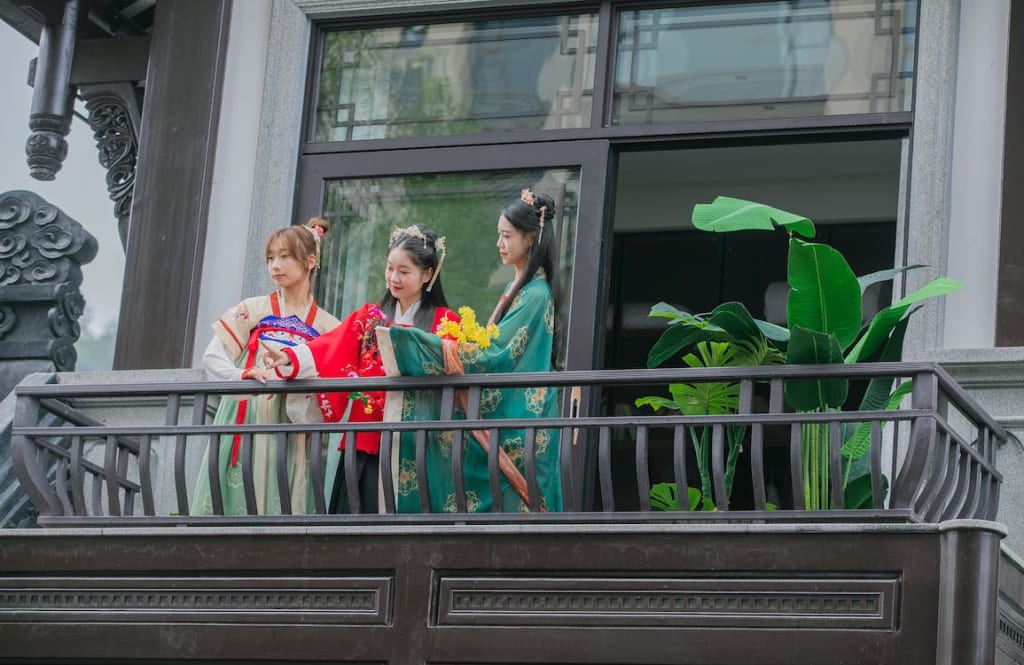
JAPANESE CULTURE
Japan is known for its unique culture, which is full of customs and habits that are not only fascinating but also valuable to learn from. Japanese people have developed many positive habits over the years that contribute to their high levels of efficiency, productivity, and social harmony. In this article, we will discuss some of the good habits of Japanese people that are worth learning from.
Punctuality:
Japanese people are known for their punctuality, which is a highly respected trait in their culture. They consider being on time as a sign of respect to others and believe that it is important to show up on time for work, appointments, and meetings. This habit is not only important for social harmony but also helps them to be more productive and efficient.
Politeness:
Japanese people are also known for their politeness and respect for others. They use polite language, bow when greeting others, and avoid using harsh words or tones. They also prioritize the comfort and well-being of others over their own, which is evident in their willingness to offer help and assistance whenever needed.
Cleanliness:
Cleanliness is an integral part of Japanese culture, and it is evident in the way they keep their homes, streets, and public spaces. They have a culture of cleanliness and hygiene, and they take pride in keeping their surroundings clean and well-maintained. This habit not only contributes to their overall health and well-being but also helps to create a more pleasant environment for everyone.
Hard work:
Japanese people have a strong work ethic and believe in putting in their best effort in everything they do. They value hard work and perseverance, which are essential for achieving success and personal growth. This habit is reflected in the way they approach their jobs, education, and personal goals.
Respect for elders:
In Japanese culture, respect for elders is considered a fundamental value. They believe that older people have more wisdom and experience and therefore deserve to be treated with respect and honor. They also place a high value on family and community, and they take care of their elderly family members with utmost care and respect.
Mindfulness:
Japanese people have a culture of mindfulness, which is reflected in their daily routines and practices. They believe in being present in the moment and taking time to appreciate the beauty of nature and their surroundings. This habit helps them to reduce stress and anxiety and promotes mental well-being.
Additionally, Japanese people also have a strong sense of discipline and self-control. They believe in the concept of "gamin," which translates to "enduring the seemingly unbearable with patience and dignity." This habit helps them to persevere through difficult times and challenges, which is essential for personal growth and development.
Japanese people also value education and continuous learning. They believe in the importance of acquiring new knowledge and skills throughout their lives, which is evident in their high literacy rates and educational achievements. This habit helps them to stay competitive and adapt to the constantly changing world.
Finally, Japanese people also have a strong sense of community and collective responsibility. They believe in the concept of "wa," which translates to "harmony" or "cooperation." This habit helps them to work together towards common goals and create a sense of unity and solidarity.
Overall, the good habits of Japanese people are deeply ingrained in their culture and way of life. By learning from their habits and practices, we can improve our own lives and contribute to a more harmonious and productive society.
In conclusion, Japanese culture is full of good habits and practices that are worth learning from. The habits mentioned above contribute to their high levels of efficiency, productivity, and social harmony, and they can also help us to lead more fulfilling and meaningful lives. By adopting some of these habits, we can improve our overall well-being and become better members of our
Firstly, adopting the habit of punctuality can enhance our personal and professional lives. Being punctual demonstrates reliability, respect for others' time, and a commitment to fulfilling obligations. It allows us to manage our time effectively, avoid unnecessary stress, and build trust with others. By valuing punctuality, we can become more organized, efficient, and dependable individuals.
Secondly, practicing politeness and respect towards others can greatly improve our relationships and interactions. Polite language, respectful gestures, and a considerate attitude create a positive environment, fostering better communication and understanding. By treating others with kindness and empathy, we promote harmony, build stronger connections, and contribute to a more inclusive society.
Maintaining cleanliness not only benefits our personal well-being but also enhances the overall quality of our surroundings. By cultivating habits of cleanliness and hygiene, such as tidying up after ourselves, properly disposing of waste, and keeping our living spaces clean, we create a healthier environment for ourselves and others. Cleanliness also instills a sense of pride and responsibility, encouraging us to take care of our surroundings and contribute to the well-being of our communities.
The value of hard work cannot be overstated. Embracing a strong work ethic and persevering through challenges can lead to personal growth and achievement. By dedicating ourselves to our studies, careers, and personal goals, we can develop skills, overcome obstacles, and accomplish our aspirations. Hard work instills discipline, resilience, and a sense of satisfaction in our accomplishments, ultimately contributing to a fulfilling and successful life.
Respecting our elders is not only a sign of gratitude for their wisdom and experience but also an acknowledgment of the interconnectedness of generations. By honoring and caring for older members of our families and communities, we foster a sense of unity, strengthen familial bonds, and cultivate a society that values the contributions of every age group. Respecting our elders also enables us to learn from their experiences, gain valuable insights, and appreciate the wisdom that comes with age.
Mindfulness is a habit that allows us to connect with the present moment and cultivate a greater sense of self-awareness. By incorporating mindfulness practices into our daily lives, such as meditation, deep breathing exercises, or simply taking moments to appreciate our surroundings, we can reduce stress, improve mental well-being, and enhance our overall quality of life. Mindfulness helps us to find balance, focus on the present, and develop a deeper understanding of ourselves and the world around us.
Discipline and self-control are essential qualities for personal growth and success. By practicing discipline, we can better manage our time, prioritize tasks, and avoid distractions. Self-control allows us to make healthier choices, resist instant gratification, and work towards long-term goals. By cultivating discipline and self-control, we empower ourselves to overcome challenges, make positive changes, and achieve greater self-mastery.
Continuously learning throughout life is a valuable habit that allows us to adapt to an ever-changing world. By embracing a growth mindset and seeking out new knowledge and skills, we expand our horizons, stay intellectually engaged, and remain relevant in a rapidly evolving society. Education equips us with the tools we need to navigate challenges, pursue new opportunities, and contribute meaningfully to our communities.
Lastly, fostering a sense of community and collective responsibility creates a supportive and inclusive society. By working together, collaborating, and supporting one another, we can achieve common goals, address societal issues, and create positive change. By participating in community initiatives, volunteering, or supporting local businesses, we contribute to the well-being of our communities.





Comments
There are no comments for this story
Be the first to respond and start the conversation.